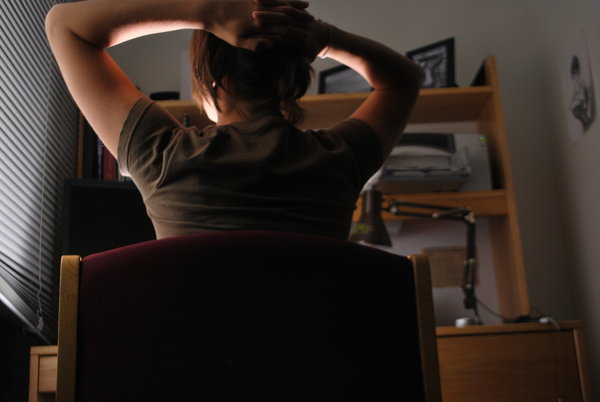
A panic attack is a sudden occurrence of intense fear that develops without any obvious reason and which in return triggers several physical reactions. Panic attacks can be quite frightening for not only for the person who is experiencing it but also for the onlookers. When panic attack occurs, you may think that you are losing control, having a cardiac arrest or even dying. You may experience a couple of panic attacks in your lifetime which is fine but if you have experienced several panic attacks and have spent long periods wondering about another attack then it may be panic disorder. Panic attacks are no more considered as a result of stress or nervousness and are seen as a rare medical condition. The panic attacks can significantly undermine your quality of life. The best part is that their treatment is quite effective.
Causes
So far, the causes or triggers of panic attacks are unknown. However, the genetic makeup of an individual, the stress levels and some changes in the way the brain functions may play a role in bringing about panic attacks. A few researches have suggested that your body’s natural fight or flight response plays a role in panic attacks. For example, if a lion came after you, your body will react to it instinctively as you would notice your heart beat and breathing is faster and you are probably sweating. Usually, one may experience several of thedf same reactions during a panic attack. Although, it still needs to be researched why an individual gets a panic attack when there is no apparent danger present. Besides, following factors can also cause panic attacks:
1. An overactive thyroid
2. Depression/mood disorder
3. Alcohol abuse
4. Too much of nicotine or caffeine intake
5. Certain medication like the ones used for asthma and heart problems
6. High levels of stress sustained for longer periods of time
7. A parent with a history of depression or bipolar disorder
Symptoms
Few symptoms of panic attack include sense of impending death, sweating, rapid heart rate, palpitation, breathlessness, hyperventilation, chills, nausea, hot flushes, cramping, chest pain, headache, giddiness, faintness and trouble swallowing. You may experience a few or many of these symptoms during a panic attack. Since these symptoms are quite akin to life threatening conditions, it is very important to seek an accurate diagnosis and treatment.
One typical characteristic of panic attacks is that they begin suddenly without warning and can strike you at any time during your sleep, while your are driving or at anytime. The symptoms usually peak within 10 minutes and last for about thirty minutes. The worst part about panic attacks is the intense fear that you will have another panic attack. If you have experienced four panic attacks in a row and live constantly under the fear of another attack, then you may be suffering from panic disorder.
When to visit a doctor?
If you experience any of the panic attack symptoms mentioned above, then seek medical help as soon as you can. Panic attacks are hard to manage without any medical intervention and in fact may get worse without any professional help. Also, it is important to get them evaluated by a professional health care provider because they resemble many other life threatening health conditions like cardiac arrest.
Tests and Diagnosis
To ascertain that you are suffering from panic attacks or panic disorder, your doctor will examine you through an array of options like:
1. Physical exam
The doctor may measure your height and weight and may check your vital signs like heart rate, blood pressure and temperature and examining the abdomen.
2. Lab tests
This may include a CBC or complete blood count and thyroid tests and may be a few more tests. You may get an electrocardiogram done to determine the functioning of your heart.
3. Psychological evaluation
A mental health provider may ask you about your symptoms like how often they occur, how you feel, how long you have been experiencing them, etc. He may also ask about stressful situations in your life, fears or concerns you have, relationship problems and other issues affecting your life. An individual experiencing frequent panic attacks may be asked to fill out psychological self-assessments form or questionnaires. In addition, your doctor may also ask you about substance or alcohol abuse.
Treatment and Drugs
The treatment aims at eliminating all your panic attack symptoms. With the help of effective treatment most people are generally able to live normal lives. The main treatment is combined therapy of medications and psychotherapy. Your doctor will start with one type and will add another also depending upon your situation and other factors like availability of the psychotherapists, etc.
Prevention
Some of the lifestyle changes can help you immensely while you continue with your treatment. First of them is to continue with your treatment thoroughly and do not break it in between. You can also join a support group which helps you share your experiences with people who are facing similar problems and form a support group. You need to avoid overdoses of caffeine, alcohol and other nicotine which can trigger panic attacks. Getting physically active and practicing relaxation techniques will help you relieve the stress and make you feel better.
Frequently Asked Questions
1. Is there any alternative therapy available?
Researchers suggest that relaxation training and nutritional supplement called inositol can be particularly helpful in treating panic disorders. The relaxation techniques include deep breathing, yoga, meditation and progressive muscle relaxation. Besides, the nutritional supplement inositol which is an oral supplement may reduce the frequency and severity of panic attacks.
It is strongly recommended that you talk to your doctor before trying these alternative therapies as these products can cause side effects and may interfere with other medicines.
2. What are the possible complications if the disorder is left untreated?
If left untreated, panic attacks can severely compromise your quality of life and can affect almost all arenas of your life. You may become so fearful of having more panic attacks that you may ruin your entire life. Following are the complications panic attacks may cause or be associated with:
1. Development of various phobias
2. Problems at workplace or school
3. Depression
4. Suicidal thoughts
5. Substance or alcohol abuse
6. Financial problems
7. A tendency to avoid social situations



